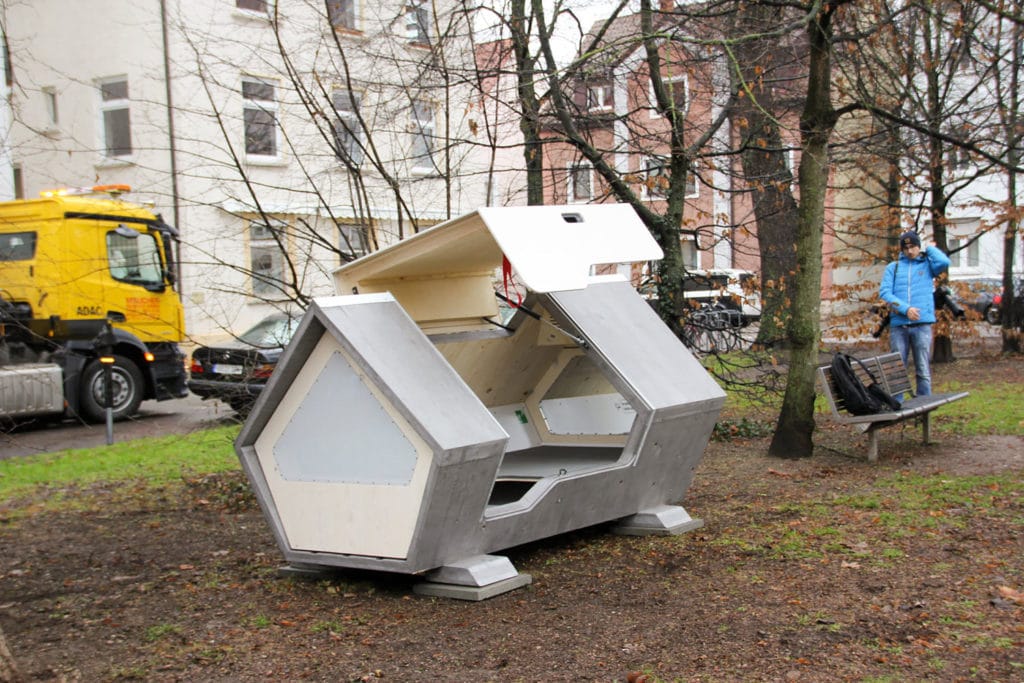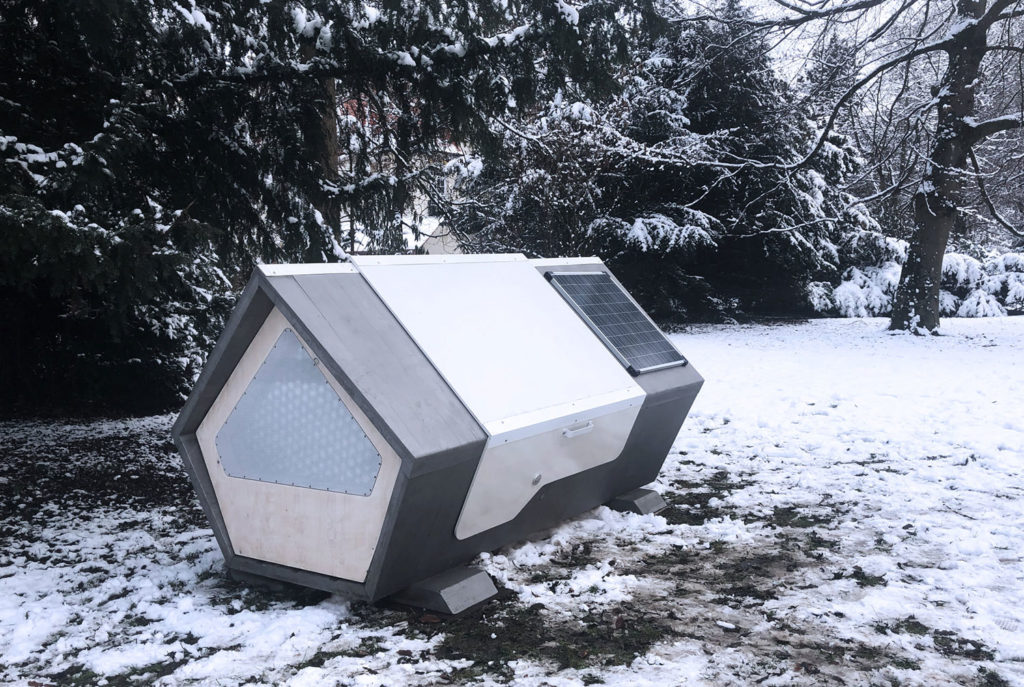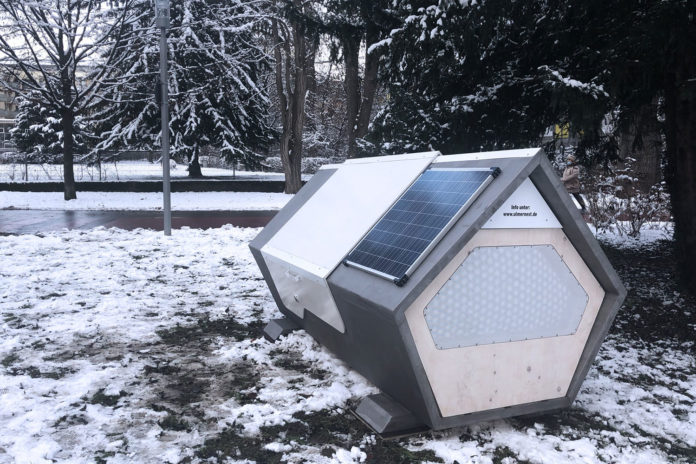Many homeless people end up sleeping on a park bench or on the street, and Winter time can be particularly difficult.
A German-based team has installed windproof and waterproof futuristic sleeping pods across the German city of Ulm to provide the homeless with emergency shelter at night. It is a pilot project that is now attracting international attention.
The sleeping pods, which are known as Ulmer Nest, are intended to provide shelter, especially in winter, when temperatures are below zero.

Ulmer Nests are made of wood and steel and effectively protect users against rain or strong wind. They are equipped with solar panels and a set of sensors, which can monitor temperature, humidity, smoke, and carbon dioxide levels. The pods are designed to keep up to two people protected from rain, frost, and humidity, as well as ensure air circulation.
Additionally, Ulmer Nests are connected to a radio network that allows their users to get in touch with the team overseeing the cabins. They also protect user’s privacy by not including any cameras. Instead, there is a motion sensor that alerts social workers, or Ulmer Nest members, that someone spent the night in the capsule. The next day, a volunteer is in charge of cleaning the pod for anyone requiring it. The capsules are not intended for permanent overnight stays.

Besides, the design is protected against fire and includes an electronic verification system so those using it can lock the capsule from the inside.
The first sleeping pods were installed in Ulm in the winter of 2020 as part of a pilot project. However, some changes have been made to the design since then. The pods are still in their early testing stage, and a lot of work is taking place to improve the capsules and how they function. If successful, they could be used throughout Germany.
